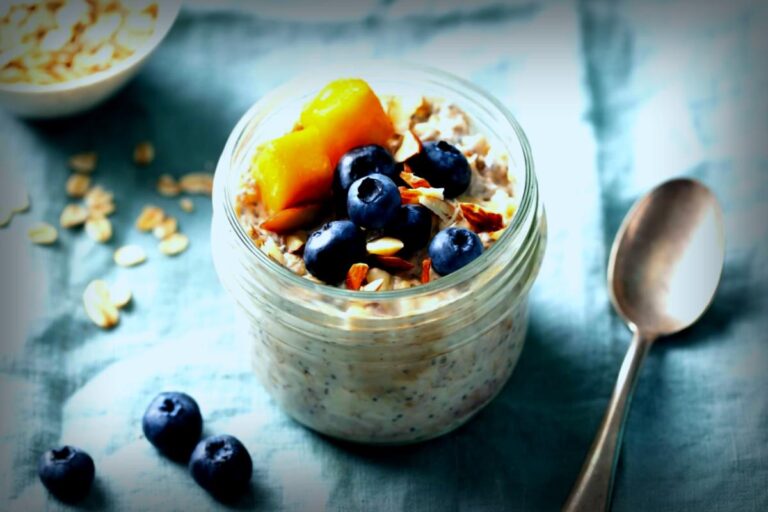When it comes to diets, health experts almost unanimously point to the Mediterranean diet as the cream of the crop for promoting longevity and overall wellbeing. But what exactly makes it such a winner? Years of clinical studies have flooded in, revealing that this way of eating nurtures just about every part of the body—all without going through strict diets or difficult rules.
The Anti-Inflammatory Benefits
The Mediterranean diet takes inspiration from the traditional foods of nations along the Mediterranean Sea—think Greece, Italy, and southern France. This lifestyle is brimming with vegetables, fruits, whole grains, legumes, nuts, seeds, fish, and high-quality extra virgin olive oil, while limiting meat and almost completely stripping out heavily processed foods.
But what sets this diet apart isn’t just its diversity—it’s the incredible anti-inflammatory benefits that it offers. As we’ve learned from research, chronic inflammation can lead to a host of age-related ailments like heart disease, arthritis, type 2 diabetes, and even certain cancers. While some inflammation is natural (it’s part of our immune response), extended inflammation can stealthily harm our tissues and organs.

The Mediterranean diet’s rich content of omega-3 fatty acids, polyphenols, and antioxidants creates a powerful shield against this problem. Dr. Frank Hu from Harvard points out that there are numerous studies showing that foods common in this diet actively combat inflammation.
Take olive oil, for example. Extra virgin olive oil is loaded with oleocanthal, a compound that mimics ibuprofen in its anti-inflammatory effects. This could potentially lead to less discomfort from arthritis and similar inflammatory conditions. Additionally, fish like salmon, sardines, and mackerel provide those all-important omega-3 fatty acids that manage inflammation in our bodies.
The Magic of Plant-Based Variety
It’s not solely about what you pile onto your plate—how these ingredients harmonize is just as significant. Foods such as tomatoes, berries, and leafy greens are packed with unique antioxidants that protect our cells from oxidative stress, which is inherently tied to both aging and inflammation. Think of these antioxidants like tiny bodyguards, forever on duty to shield our tissues from the damaging impacts of free radicals.
For instance, dark leafy greens like spinach and kale don’t just fill your plate; they contain compounds that ramp up your body’s natural antioxidant production, helping keep your blood vessels healthy. Plus, fiber-rich beans and lentils benefit our gut microbiome, a critical element in managing inflammation and boosting immune health.

Simple tweaks—like tossing nuts into your salad or switching from white bread to whole-grain options—can effectively lower inflammation and enhance metabolic health. According to Dr. Annie Moore from the University of Colorado, the Mediterranean diet creates a balanced internal system that buffers us against illness as time goes on.
Choosing Whole Foods Over Processed
Equally important as what you eat is what you choose to avoid. The Mediterranean diet actively steers clear of processed and packaged foods, particularly those high in sugar, refined grains, and harmful additives. These types of ingredients quickly generate chronic inflammation and have been increasingly connected to various serious diseases—including type 2 diabetes and even lung cancer.
Sure, fast food and pastries taste tempting and convenient, but inside, they may inflict serious damage. Additives such as excess sodium, trans fats, and sugars can impair blood vessel function, raise blood pressure, and even foster insulin resistance—all key indicators of inflammation.

By focusing on whole foods, you prioritize nutrients instead of empty additives. Subtle swaps—like opting for plain Greek yogurt instead of sugary alternatives or roasting veggies in olive oil rather than dousing them in processed sauces—can lead to meaningful health improvements.
Adopting Healthy Patterns, Not Perfection
A major reason the Mediterranean diet thrives is because it’s flexible. Forget rigid meal plans and tedious calorie counting—this approach to eating is all about finding a healthy pattern rather than sticking to a strict guideline. This means you can easily personalize it to fit your taste buds and lifestyle and let it grow with you as your needs change.
Whether you lean towards the MIND diet—which combines Mediterranean principles with brain-boosting foods—or the DASH plan aimed at maintaining healthy blood pressure levels, the core remains unchanged: eat whole foods, pile on the plants, and keep processing to a minimum.

What’s crucial here is the communal aspect. Surrounding yourself with good company during meals, savouring each bite, and cooking thoughtfully all contribute to a fulfilling culinary experience. The Mediterranean lifestyle is about more than just nutrients; it celebrates a balanced mindset and quality time at the table without rushing to upset the joy of eating.
Faye James is a qualified nutritionist based in Sydney and the author of several diet-related books, such as The 10:10 Diet and The Menopause Diet. Her latest work focuses on the perimenopausal experience.





















